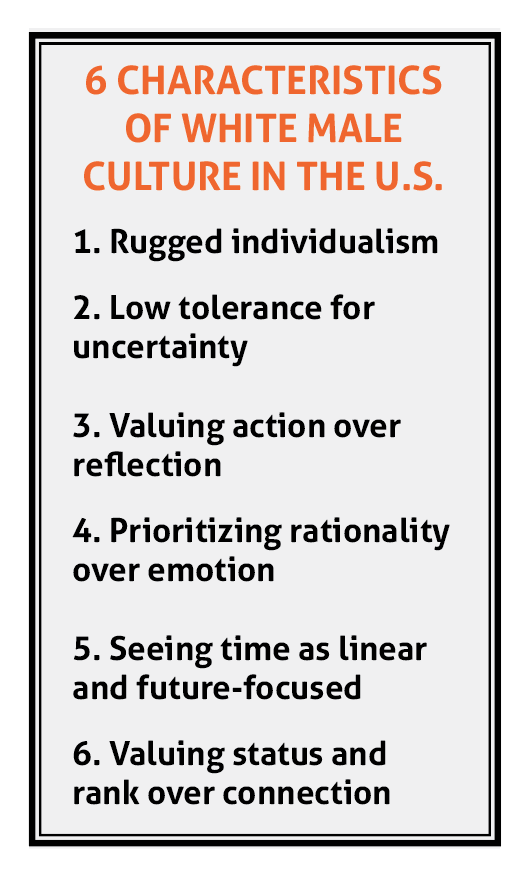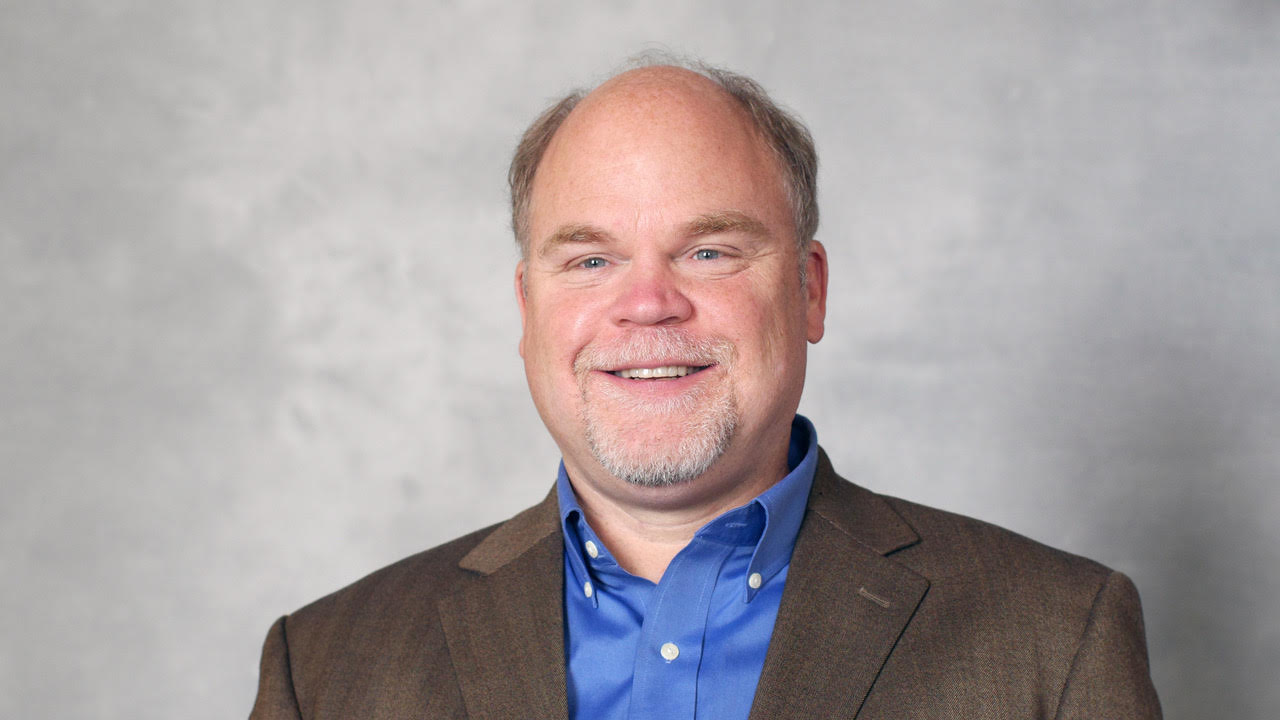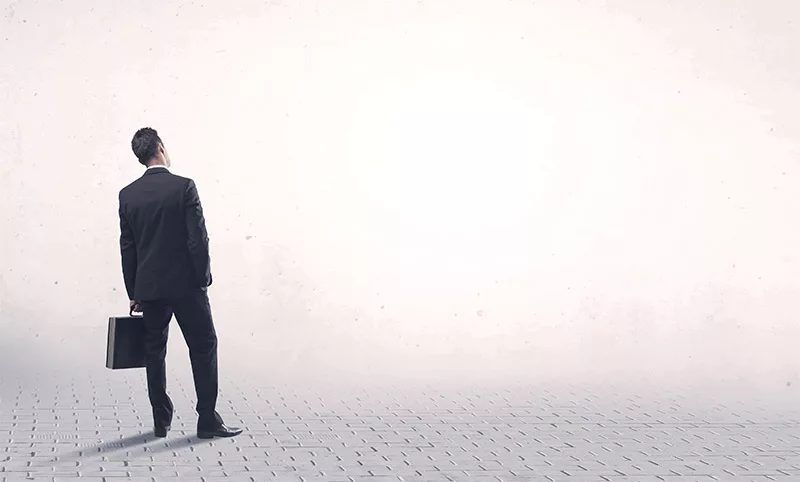Most diversity efforts at work target women and minority groups. Too many men — especially straight White men — are, at best, unengaged with diversity and inclusion efforts or, worse, feel threatened by them as they find themselves targets of anger and frustration or watch women and minorities rise seemingly at their expense. Yet White men hold the overwhelming majority of leadership positions at US companies. The math doesn’t lie: if more equality is the goal, White men need to be involved.
That’s why Michael Welp co-founded his consulting and training firm, White Men as Full Diversity Partners (WMFDP), more than 20 years ago. One problem the company hopes to solve is that White men turn almost exclusively to women and people of color to educate them about race and gender issues. “That’s a huge burden,” says Welp. He also points out that a dynamic emerges in many companies where White men fear that if they ask any questions or challenge anybody on diversity, they’re going to be seen as being anti-diversity or racist. “Therefore, they just shut up and sit back and walk on eggshells,” he says. “The problem with that is no learning happens.”
The first step: Recognize that “White male” is a cultural identity

The solution, suggests Welp, is to explicitly talk to and about “White men” as a group. “When you call out the words White men, people don’t know what to do with it,” he says. “When we focus on gender, it’s always talking about women. When we focus on race, the conversation is always about people of color.” When people do talk about White men, it’s often in the context of White supremacy — to the point that participants in Welp’s “White Men’s Caucus” workshops are often embarrassed to name where they’re going.
That’s a mistake, says Welp. “We have a culture. But we live and breathe in our own cultural waters so much that we don’t even see it as a culture. We just equate to being a good American, or being a good human.” By making explicit the implicit assumptions of White male culture, White men are then able to see how those assumptions have affected them and the others who must change their norms and behaviors to fit them.
“To be White and to be male is not to have to think much about being White and male. It’s just a normal thing. The world is set up for us,” says Welp. “We don’t have to work hard to buy greeting cards of people of our race. People know how to cut our hair. When we travel on business, we don’t worry about arriving after dark in a city we don’t know or about having a hotel room on the ground floor. We have this assumption that everybody in the world feels as safe. We over-attribute sameness, and that has us blind to the things that others are dealing with that we’re not. We don’t have to step out of the water that we swim in. Others are more bicultural. They have had to understand a lot more of our culture to fit into it.”
Most White men believe in equality and would say they treat everybody the same, without realizing that what they perceive as normal or standard is in fact what Welp calls “a cultural box” they’re asking others to fit into or assimilate with. “It’s not that we don’t care. It’s that we don’t see it,” he says. “We don’t see that we are literally not having the same experience in the world, that others have to face a lot of additional challenges.”

White Men as Full Diversity Partners cofounder Michael Welp
Diversity benefits everyone
Welp is careful to stress that improving diversity and inclusion within our society and workplaces can have many benefits for the majority group. “ our default thinking about diversity is we’re helping other people with their issues,” Welp says. “When really there’s as much at stake and as much to gain for us as for anybody else. Learning about diversity for White guys will make us better humans, better parents, better spouses, and better leaders.”
WMFDP points to twelve new mindsets and eight critical leadership skills (quiz), such as incorporating multiple perspectives and integrating head and heart, that White men can tap into to better thrive in an increasingly diverse world. For example, at one company where Welp’s team ran workshops, a survey four months after the events found that, according to their co-workers, the White men who’d participated listened 33 percent more. “If I’ve learned to listen 33 percent more in my life,” asks Welp, “how does that impact my relationships and my partnerships and my customers?” He tells stories of fathers transforming their relationships with their sons after getting the chance to see and question their default culture in a WMFDP workshop. Just being made aware of their default expectations was enough to allow them to make different choices.
Play for the long haul
Welp cautions people not to try to “solve” diversity and inclusion issues in their companies. Instead, look at the process of addressing them as being a laboratory for conscious leadership. “We wouldn’t look at safety or quality in any company and say, ‘Oh, we’ve done that session once now. We’re done,’” he points out. “Diversity is an ongoing thing that we have to focus on all the time. Let’s do it in a way where we grow the ability to have powerful dialogue and authentic relationships with each other. That’s the merger of leadership development and diversity.”
In an increasingly politically polarized world, Welp sees the work of tackling diversity conversations with all parties as being more important and valuable than ever. “When people come together with vulnerable courage and transparency and humility, I see a lot of powerful partnerships take place,” he says. “People are learning to trust love as much as they trust anger or fear, and that creates a lot of hope for me.”
White Men as Full Diversity Partner at a Glance
Location: Portland, OR
Founded: 1995
Team Members: 39
Impact: WMFDP team members have presented workshops in more than a dozen countries worldwide.
Key Recognition: Two long-term clients won the Catalyst Award for positive changes to their workplace culture that advance women and diverse groups.
Mission statement: “To inspire leaders (especially White men) to examine their mindsets and assumptions in order to shift behaviors that create sustainable and inclusive work cultures, which in turn drives business results.”







